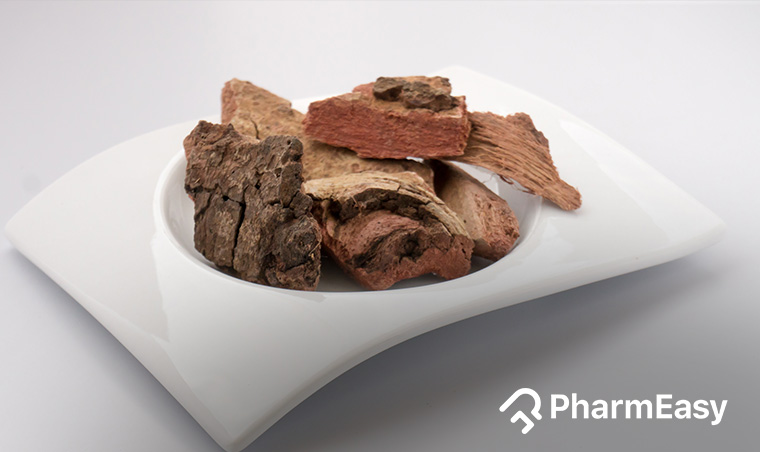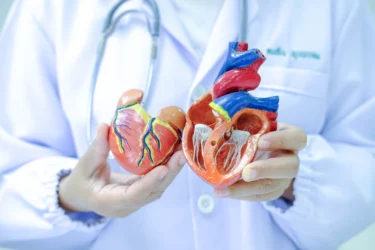Amaltas (Golden Shower Tree): Uses, Benefits, Side Effects & More!
By Dr Anuja Bodhare +2 more

Get,

to manage your symptom
Get your,


4 Cr+ families
benefitted

OTP sent to 9988776655



You’ve successfully subscribed to receive
doctor-approved tips on
Whatsapp

Get ready to feel your best.

Hi There,
Download the PharmEasy App now!!


Register to Avail the Offer
Send OTPBy continuing, you agree with our Privacy Policy and Terms and Conditions

Hi There,
Sign up on PharmEasy now!!
Trusted by 4 crore+ families

OTP sent to 9988776655



You have unlocked 25% off on medicines




Code: NU25
By Dr Anuja Bodhare +2 more
Table of Contents
Amaltas also known as Cassia fistula or Golden shower tree is a popular herb in Ayurvedic medicine known to be useful in a variety of health conditions. This tree has many names, out of which Pupping pipe Golden Shower, Aragvadha, and Indian Laburnum are the most common ones. Amaltas is prevalent in India and Pakistan and is also found in a few parts of Southeast Asia. Due to its extensive beneficial properties, it is cultivated in many parts of India1.

All the parts of Amaltas. The leaves, seeds, root, pulp, fruit, and bark have various potential properties that are responsible for its various uses. It may also helpful in pacifying all three body energies: Vata, Pitta, and Kapha2.
The leaves might possess laxative properties.

Amaltas may be a remedy for constipation. The emulsion obtained from Amaltas may be effective in the 3-week treatment of functional constipation in children. Amaltas may be used as a mild laxative in pregnant women as well. The Amaltas pulp can be mixed in hot water and taken for constipation5,6. There is a need for more scientific research to prove these claims.
Other than loads of health benefits, Amaltas may be beneficial for taking care of a stomach illness. I recently read in an article that it may be a perfect choice to aid in acid reflux since it is a rich source of anti-oxidants16.
Dr. Siddharth Gupta, B.A.M.S M.D (Ayu)

Amaltas may have antitussive (cough-suppressing) properties. The pods are burnt, made into ash, mixed with salt and honey. This mixture may be used for relieving cough. It may also have some effect on fevers. The leaves of Amaltas also may be effective in relieving cough. Amaltas may help to boost immunity and protect the body against infections7. There is a need for more scientific research to prove these claims. You must consult a doctor for better advice.

The leaves of Amaltas can be used in skin conditions like ringworms, eczema, and skin eruptions. Amaltas root may help with dermatological problems. The fruit pulp of Amaltas was also found to be beneficial in treating skin diseases and worms. The leaves of amaltas may be used in erysipelas8. However, these properties of amaltas to manage skin problems would need further studies. Therefore, you should not amaltas without guidance from a doctor.
Amaltas may be used as an anti-venom to snakebites. I recently read an article that suggests due to its anti-inflammatory and anti-oxidant properties, Amalatas is a potential anti-venom for snakebites15.
Dr. Rajeev Singh, BAMS

Amaltas may contribute in strengthening heart muscles, reducing blood cholesterol levels, and preventing the build-up of lipids. Hence it decreases the risk of heart diseases, blood clot formation, etc4. These activities, however, are yet to be proved in humans. Moreover, heart conditions must be properly diagnosed and treated by a specialist doctor. Therefore, kindly ensure to consult a doctor.

Amaltas can also be used in problems related to urination like burning during urination, urinary retention and obstructions in the abdomen4. There is a need for more scientific research to prove these claims. You should consult a doctor for prescriprion and guidance. Though studies show the benefits of amaltas in various conditions, these are insufficient and there is a need for further studies to establish the true extent of the benefits of amaltas on human health.
Amaltas is available in different forms1:
You must consult a qualified doctor before taking any herbal supplements. Do not discontinue or replace an ongoing treatment of modern medicine with an ayurvedic herbal preparation without consulting a qualified doctor.
Generally, Amaltas is safe even when used for children. However an overdose of leaves and barks of Amaltas produces side effects like8:
Therefore you must consume amaltas as per advise of you doctor only. He will guide you for suitable form and dose.
Also Read: Pippali (Long Pepper): Uses, Benefits, Side Effects & More!
There is a lack of sufficient data regarding the interaction of amaltas with any other drugs. Therefore, consult a doctor before taking it especially if you are on medication are receiving treatment for any condition.
Also Read: Rambutan: Uses, Benefits, Side Effects, and More By Dr. Smita Barode
Amaltas help protect your skin and can reduce rashes and irritation. It can be used for conditions like skin eruptions, psoriasis, eczema, etc9. However further research is needed to validate this claim.
The paste made from the fruit of Amaltas is rubbed gently around the navel area for abdominal pain. It is also used for treating bloating10. Consult a doctor for advice on the use of amaltas for abdominal pain.
Due to its antioxidant and anti-inflammatory properties, Amaltas is effective in arthritis11. However, more research is needed to prove these claims as concrete facts.
Amaltas is commonly found in tropical, subtropical, and deciduous forests. They also prefer moist areas and mountain areas4.
Amaltas contains stem bark, leaves, root bark, flowers, and pods. All these parts have extensive medicinal uses.
Amaltas is an effective remedy for treating skin wounds. Amaltas can be used as an ointment on the affected area for obtaining better wound closure and reducing the size of the wound12. Take the advice of a qualified doctor for any injury or wound, it may cause more harm than benefit if not taken proper care.
Amaltas is known to be effective in controlling the growth of bacteria. It is also antifungal in nature. The fruit pulp of Amaltas contains anticandidal properties13. More studies are needed to identify the extent of the benefit of amaltas against bacteria.
Yes, Amaltas can be helpful in the treatment of diabetes. It protects the pancreatic cells from damage and improves the secretion of insulin14. Diabetes is a serious health condition and you must consume herbs or medications only under medical supervision.
Amaltas is an antidiabetic, hepatoprotective (liver protecting) antipyretic, anti-inflammatory, hypolipidemic, antioxidant, antitussive, antimicrobial, antiparasitic, antitumor, anti-itching, antileishmanial, wound healing and larvicidal8.
Disclaimer: The information provided here is for educational/awareness purposes only and is not intended to be a substitute for medical treatment by a healthcare professional and should not be relied upon to diagnose or treat any medical condition. The reader should consult a registered medical practitioner to determine the appropriateness of the information and before consuming any medication. PharmEasy does not provide any guarantee or warranty (express or implied) regarding the accuracy, adequacy, completeness, legality, reliability or usefulness of the information; and disclaims any liability arising thereof.
Links and product recommendations in the information provided here are advertisements of third-party products available on the website. PharmEasy does not make any representation on the accuracy or suitability of such products/services. Advertisements do not influence the editorial decisions or content. The information in this blog is subject to change without notice. The authors and administrators reserve the right to modify, add, or remove content without notification. It is your responsibility to review this disclaimer regularly for any changes.
Comments

Leave your comment...
You may also like
Comments